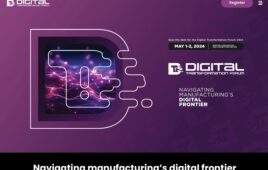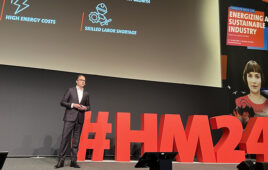Toothbrushes with Wi-Fi connectivity. A hairbrush that listens as you brush your hair. (Why??) These are just a couple of the products revealed at the recent CES Show. Thanks to the IoT, products can meet a marketing goal of ensuring users have a “relationship” with products; which, it is hoped, will sell more stuff.
A more useful purpose for the IoT, however, is to remove “friction” from “business and industrial processes and human interactions, … so that you can move with less force.” This quote is from Thomas Friedman’s book, “Thank You for Being Late: An Optimist’s Guide to Thriving in the Age of Accelerations.”
Friedman’s book introduces a term, the supernova-driven economy, which is the current shift from an industrial-age economy to a “computer-internet-mobile-broadband-driven economy.” Driving this shift is compute power. In four years, the average computer will have 900% more power; in 10 years over 10,000%, according to systems thinker Lin Wells.* This compute power is enabling development in artificial intelligence (or artificial assistance), where computers evolve to a point where they develop algorithms independently of human programmers.
This supernova “is vastly expanding and accelerating the power of “flows.” The flows of knowledge, new ideas, … innovation, insults, rumors, collaboration, matchmaking, lending, banking, trading, friendship-forging, commerce, and learning, [which] now circulate globally at a speed and breadth we have never seen before.”
Not everyone is adjusting to the supernova shift well as more jobs and tasks are automated. Thanks to the developments in artificial intelligence, the resulting expert software can even tackle tasks requiring creativity.
Like design. Simply give the expert software parameters, such as the expected load, travel distance, size dimensions, accuracy, and so on. Designers will be surprised at the results, which will work and likely produce a unique looking item.
Now what will you do when an automated system takes over design? Here’s a hint. According to Friedman, “the key skill engineers will need will be the ability to ask the right questions.”
The supernova will force whole redesigns of factory, business, and government operations. Such a shift has happened before, during the Second Industrial Revolution when electricity was introduced. Factories and business had to be redesigned to get full productive benefits from the new power source. It took more than 30 years.
Notes Friedman, we are entering an era where man and machine will collaborate. “.…with the computer’s help, the designer is now able to understand the whole range [of any system] beyond what any human mind can comprehend on its own.”
Friedman quotes Antoine van Agtmael, who coined the term emerging markets, “The combination of cheap energy in America and more flexible, open innovation— where universities and start-ups share brainpower with companies to spin off discoveries; where manufacturers use a new generation of robots and 3-D printers that allow more production to go local; and where new products integrate wirelessly connected sensors with new materials to become smarter and faster than ever— is making America the next great emerging market.”
This is the optimistic view of the supernova.
Here’s a downside: What tasks and skills should never be automated?
*As quoted by Friedman in his book.
Leslie Langnau
[email protected]
Filed Under: IoT • IIoT • Internet of things • Industry 4.0





Tell Us What You Think!